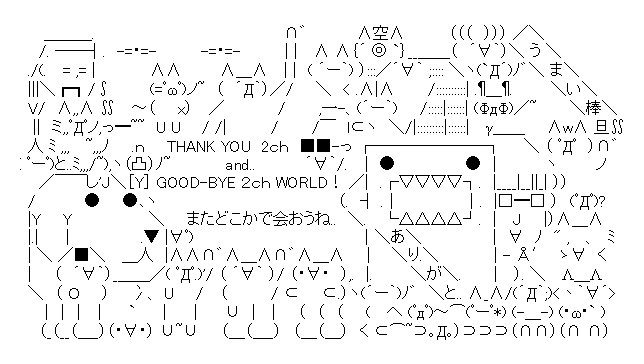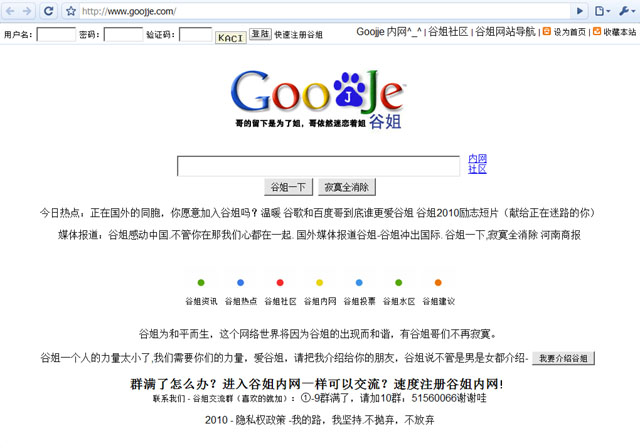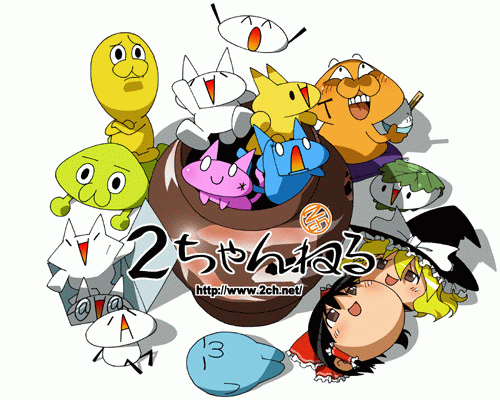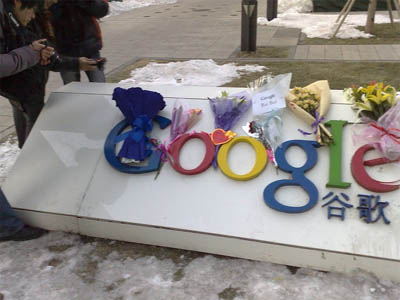Goojje 谷姐
Prada / First Spring
Every day the fashion world seems to be getting one step closer to a truly successful digitally based campaign
That day might finally have arrived. The latest Prada menswear campaign is grounded by a nine minute film from established Chinese artist Yang Fudong. The video debuted this week on Prada’s site and the New York Times online, with the view to follow with a print campaign - featuring stills from the film - in February.
While a short film may be nothing out of the ordinary, we reflect on the Audrey Tautou and Chanel campaign of last year and realise that the reason Prada’s latest effort is so stunning is its lack of blatant product placement. The film, set in old world Shanghai quite literally intertwines the collection with traditional Chinese costumes. The reference also nods to the expanding luxury market, both digitally and in particular in China. The film oozes whimsy and beauty and takes viewers on a journey deep into the Miuccia’s psyche when dreaming up the collection.
Sit back and take it in… and designers - take note.
“A view of a flat horizon line over land or water.”
IBM SECOND LIFE PROTEST
On September 27, 2007, the world experienced its first virtual strike. In response to a wage dispute, IBM workers in Italy organized a picket outside their company’s “corporate campus” based in the 3-D virtual world of Second Life. According to a report in the Guardian, workers “marched and waved banners, gate-crashed a [virtual] staff meeting and forced the company to close its [virtual] business center to visitors…. The protest, by more than 9,000 workers and 1,850 supporting ‘avatars’ from thirty countries,” included a rowdy collection of pink triangles, “sentient” bananas and other bizarro avatars.
While the strike was playful, it was also buttressed by careful planning and organization. Workers set up a strike task force, developed educational materials in three languages and held more than twenty worker strategy meetings. The hard work paid off. According to Christine Revkin of the UNI Global Union, which was involved in the strike, the online protest led to new negotiations and a better deal for the workers. Twenty days after the initial protest the Italian CEO of IBM, Andrea Pontremoli, resigned. (Here’s a video from the strike.)
http://www.thenation.com/doc/20090202/smith_costello_brecher
Dataisnature
Graphic Music – sound pictograms
The representation of music in notation form is interesting when composers have developed their own idiosyncratic forms of notation. The resulting scores double as sound pictures, esoteric diagrammatic representations of sound in space and time.

They are like magickal sigils understandable to only those who have the keys to work with them and understand their semiotics. Of course just like magickal sigils these images are interesting in themselves and beckon decipherment. Today my travels have lead me to collect some examples of ‘notation art’.
The blockmuseum has a page devoted to experimental graphical notation where you can zoom into each score and view its details.
Here are some more examples:
Water music – John Cage
Variations – John Cage
Fontana mix – John Cage
Often Cage used methods of randomness to bring about indeterminacy in his music, for example sometimes a piece involved the use of clocks allowing it to change throughout the day. We could call this work generative I think; the random algorithmic generation being controlled by external environmental artefacts.
Edges - Christian Wolff
King of Denmark – Morton Feldman
Tunnel Spiral - Stockhausen
Of course many visual artists have painted music. Paul Klee and Piet Mondrian both spring to mind.
2channel
2channel (2ちゃんねる ni channeru, 2ch for short) is a Japanese Internet forum, thought to be the largest Internet forum in the world.[3][4][5] Launched in 1999, it has gained significant influence in Japanese society, comparable to that of traditional mass media such as television, radio, and magazines.[
check out the the amazing ASCII art on one of their threads:
http://live24.2ch.net/test/read.cgi/eq/1254224828/

2channel Shift JIS art
∧ ∧
< `∀´> Kekeke
/ つ¶つ¶
/ ̄ ̄ ̄ ̄\
|) ○ ○ ○ (|
/″ 韓 \
(( (( (( /________\
 ̄ \_\__/_/
Shift_JIS art is artwork created from characters within the Shift_JIS character set, a superset of ASCII intended for Japanese usage. Naturally there are many similarities between Shift_JIS artwork and ASCII art.
Shift_JIS has become very popular on web-based bulletin boards, notably 2channel, and has even made its way into mainstream media and commercial advertising in Japan.
Aquaduct concept vehicle

The Aquaduct vehicle seeks to address the two main challenges with water in the developing world: sanitation and transportation. Water-related diseases kill thousands of people each day. Moreover, water sources in developing areas can be miles from home, requiring women to walk these distances daily carrying heavy water vessels.
The Aquaduct is designed to enable a person to sanitize and transport water simultaneously, potentially lessening the physical strain of the task and freeing up more time for work, education, or family.
As the rider pedals, a pump attached to the pedal crank draws water from a large holding tank, through a filter, to a smaller, clean tank. A clutch engages and disengages the drive belt from the pedal crank, enabling the rider to filter the water while traveling or while stationary. The clean tank is removable and closed for contamination-free home storage and use.
In its current state, the Aquaduct is a prototype aimed squarely at demonstrating a concept and raising awareness around the issues of clean water in developing countries. The Aquaduct team plans to continue the concept’s development into an economically and technologically viable solution that addresses challenges such as cost, suitable purification technologies, and the logistics of addressing an issue that billions.
I Miss My Pencil by IDEO
What if doorbells used smell instead of sound? What if watches told time more slowly on weekends? Designers at the ground-breaking firm IDEO—the most innovative design company in the world—push themselves to ask seemingly outrageous questions like these daily as they work to construct the products that shape our lives. Following 12 design experiments conceived by designers at IDEO, I Miss My Pencil takes a voyeuristic look at what designers do daily, might get to do once, and sometimes only hope to do. Each experiment is made real through collaboration, sketching, prototyping, fabrication, and photographing to go beyond the conceptual to the curiously concrete.
Touch My Body
Touch My Body is a conceptual miracle. Take Mariah Carey’s video, cut out every sound and image except for Maria and fill the rest with fluorescent green. Then publish it on YouTube and wait for the people to fill in the void. Insubordinate art for the masses, republished on his own site HERE. We curate a second chef-d’oeuvre by Laric: AIRCONDITION. You’ll love it.
http://www.unitedvloggers.com/2008/11/15/touch-my-body-green-screen-version/
Cory Arcangel’s Clouds
Super Mario Clouds» is based on the «Super Mario» game for Nintendo’s NES game console. Cory Arcangel hacked the game and modified it so that all that remains of the game are the white clouds on a blue sky. Gone is the main character, Super Mario, who the player had to guide through a labyrinth in the original jump and run game, just like the obstacles, landscapes and opponents that lend the game its narrative structure. Those people who are familiar with the game can imagine them on the empty background, everyone else will just see the cartoon-like display of a sky. The work was created on the basis of a manipulation of the hardware and software. Cory Arcangel had to open the cartridge, on which the game was stored, and replace the Nintendo graphics chip with a chip on which he had burned a program he had written himself. Cory Arcangel is a member of the Beige Programming Ensemble who have focused their artistic programme on the hacking ethic of manipulating existing technology, thereby taking the modification of legacy technology to absurd extremes: the group have published computer programs pressed on records and organise an annual competition for «cassette disk jockeys.»
“New York, I Love You”
Coming to theatres on October 16, 2009.
Well….We all love NYC, aren’t we?
This super-project film brings a collaboration of storytelling from some of todays most imaginative filmmakers and featuring an all-star cast. Together they create a kaleidoscope of the spontaneous, surprising, electrifying human connections that pump the citys heartbeat. Sexy, funny, haunting and revealing encounters unfold beneath the Manhattan skyline. From Tribeca to Central Park to Brooklyn the story weaves a tale of love as diverse as the very fabric of New York itself.
Get Real Close
To mark the launch of MySpace Music we went behind the scenes with 9 artists to reveal the music they love. Watch the artist films and check out their playlists right here, then get cracking with your own playlists.
Ji Lee: The Transformative Power of Personal Projects
Otanatone
And finally: Matt B’s Otamatone arrived. It’s delightful. A musical toy that sounds and works much like a Stylophone: you press a contact-sensitive strip that maps to pitch, but it’s the rubber mouth of the character – that adds filtering and volume just like opening and closing your own mouth – that brings the whole thing to life. You can’t see someone playing with it and not laugh!
It’s a product by Maywa Denki, an artist makes musical toys and sells them as products; previous musical toys include the Knockman Family, all of which are worth your time watching as much of you can on Youtube.
And if you get your own Otamatone, and practice really hard, maybe you could play with some friends:
First-person Tetris
Lost Generation
“Lost Generation is a palindrome video that reads the same backwards as forward, but has a totally different meaning. The video was submitted in a contest by a 20-year old. The contest was titled “u @ 50″ by AARP. This video won second place. When they showed it, everyone in the room was awe-struck and broke into spontaneous applause.”
Via SwissMiss
Hillary Clinton comments
Statement on Google Operations in China
Hillary Rodham Clinton
Secretary of State
Washington, DC
January 12, 2010
We have been briefed by Google on these allegations, which raise very serious concerns and questions. We look to the Chinese government for an explanation. The ability to operate with confidence in cyberspace is critical in a modern society and economy. I will be giving an address next week on the centrality of internet freedom in the 21st century, and we will have further comment on this matter as the facts become clear.
People offering flowers to Google office in Beijing
We’re sure that by tomorrow morning, there will be an even bigger slew of news out about Google’s recent move (including if they actually are talking to the government, we hear they are at least). But for tonight, here’s the latest news on the matter.
You know how people were offering flowers up at the alter of Google in Beijing? That’s not allowed anymore - security officers at Tsinghua University (right next to Google’s offices) are asking you why you’re buying flowers and demanding that it not be for the Big G. That’s apparently propelled “Illegal flower donations” (非法獻花) to the first big internet meme of China 2010.
Meanwhile, quite expectedly, China’s official state media has officially told all news portals to harmonize their news with Xinhua’s/People’s Daily’s versions. Considering that China Daily’s take on the whole ordeal was a boring two sentences, Chinese people not addicted to the internet probably aren’t going to know much about this. According to Reuters, Xinhua has said that Chinese authorities are “seeking more information on Google’s statement that it could quit China” and that “it is still hard to say whether Google will quit China or not. Nobody knows.”
Wired quoted a source that said Google has tried to work to protect its employees from that “information seeking,” timing the announcement so that its Beijing branch would know about what was happening before they arrived to work. “[Google is] really concerned about their safety and feels that there is a very real possibility that they will be interrogated,” the source said. “They have been [interrogated] numerous times before, and this time they could be arrested and imprisoned.”
http://shanghaiist.com/2010/01/13/everything_almost_thats_been_happen.php#more
Two different search results
Google.com:
http://www.google.com/search?hl=en&source=hp&q=Tiananmen+square&aq=f&aqi=g5g-z1g1g-z1g2&oq=&cad=h
Google.cn:
http://www.google.cn/search?hl=zh-CN&q=Tiananmen+square&btnG=Google+%E6%90%9C%E7%B4%A2&aq=f&oq=
DAYDREAM
Kazumasa Teshigawara
Profile: Kazumasa Teshigawara, Born in Ikebukuro, Tokyo, 1977. Used to live with mother in the beginning. Later moved in with a new family. Was taken around bars while still young. Hostesses used to like me a lot. I stopped going to school. Played game at home. Cried out of fear when collectors banged at the door for money. Father ran away, got caught. Graduated elementary school. Got into an accident and hurt my neck. Father came back. Father died. Graduated secondary high. Worked at Nihonbashi Textile Processing Factory. Got into an accident, almost died, and hurt my neck. Got into music. Quit point drawing. Bought a Mac. Met some weird people. Said goodbye. Unknowingly entered a bad content design firm and quit immediately. Was scared for days after I quit because the company got hold of me. Worked and quit a number of jobs. At age 21, discovered the fun of design. Eventually got married. Had a kid. Got separated. Got the kid. Taking care of the kid. Working quietly under the label “Qubibi.” Would like to make a lot of things.
Awards: One Show Interactive Gold prize / Cannes Cyber Lions Silver prize / D&AD Awards Yello Pencill / AMD Award The Naomi Enami Award / Japan Media Arts Festival Excellence prize / Tokyo Interactive Ad Awards Bronze prize and Finalist (にほんご…)
At around 4AM local time, Google updated their official blog with an entry titled “A new approach to China.” It states that around mid December, Google discovered a “highly sophisticated and targeted attack on our corporate infrastructure” coming from within China. And this, they asserted, was the last straw for their operations here.Basically, Google discovered that:
1. the security of various multinational companies had been breached
2. a main directive of the hackers was to access the personal emails of Chinese human rights activists
3. the personal emails of human rights activists concerned with China around the world were routinely being accessed, far beyond the incident in question.
As a prominent website, Google said it was used to hackers trying to breach its security. But its months of research into these attacks raised such serious issues that it may spell the end of Google in China completely.
From the Official Google Blog:
We have taken the unusual step of sharing information about these attacks with a broad audience not just because of the security and human rights implications of what we have unearthed, but also because this information goes to the heart of a much bigger global debate about freedom of speech. In the last two decades, China’s economic reform programs and its citizens’ entrepreneurial flair have lifted hundreds of millions of Chinese people out of poverty. Indeed, this great nation is at the heart of much economic progress and development in the world today.We launched Google.cn in January 2006 in the belief that the benefits of increased access to information for people in China and a more open Internet outweighed our discomfort in agreeing to censor some results. At the time we made clear that “we will carefully monitor conditions in China, including new laws and other restrictions on our services. If we determine that we are unable to achieve the objectives outlined we will not hesitate to reconsider our approach to China.”
These attacks and the surveillance they have uncovered–combined with the attempts over the past year to further limit free speech on the web–have led us to conclude that we should review the feasibility of our business operations in China. We have decided we are no longer willing to continue censoring our results on Google.cn, and so over the next few weeks we will be discussing with the Chinese government the basis on which we could operate an unfiltered search engine within the law, if at all. We recognize that this may well mean having to shut down Google.cn, and potentially our offices in China.
Google has always had a tenuous place in Chinese cyberspace, particularly when it comes to issues of censorship: the ideological discord has been apparent since the company first came to China in 2006, hoping to expand their informational services without compromising their integrity. But in the light of China’s increasing internet restrictions, it seems Google’s very presence in China facilitates the government’s censorial agenda.
Word on the street is that the move is Google doesn’t plan on “negotiating” in the true sense of the word: rather, they’ve laid out their motives and beliefs, and expect to walk away when the government refuses to accept them. A pretty bold move from any company… though some have already wondered if this was also a way to “back out of a market it was losing to Baidu”.
We’ll be following the story for the rest of the day, so stay tuned for updates.
quoted from http://shanghaiist.com/2010/01/13/google_to_shut_down_in_china.php
Google: A New Approach to China
1/12/2010 03:00:00 PM
Like many other well-known organizations, we face cyber attacks of varying degrees on a regular basis. In mid-December, we detected a highly sophisticated and targeted attack on our corporate infrastructure originating from China that resulted in the theft of intellectual property from Google. However, it soon became clear that what at first appeared to be solely a security incident–albeit a significant one–was something quite different.
First, this attack was not just on Google. As part of our investigation we have discovered that at least twenty other large companies from a wide range of businesses–including the Internet, finance, technology, media and chemical sectors–have been similarly targeted. We are currently in the process of notifying those companies, and we are also working with the relevant U.S. authorities.
Second, we have evidence to suggest that a primary goal of the attackers was accessing the Gmail accounts of Chinese human rights activists. Based on our investigation to date we believe their attack did not achieve that objective. Only two Gmail accounts appear to have been accessed, and that activity was limited to account information (such as the date the account was created) and subject line, rather than the content of emails themselves.
Third, as part of this investigation but independent of the attack on Google, we have discovered that the accounts of dozens of U.S.-, China- and Europe-based Gmail users who are advocates of human rights in China appear to have been routinely accessed by third parties. These accounts have not been accessed through any security breach at Google, but most likely via phishing scams or malware placed on the users’ computers.
We have already used information gained from this attack to make infrastructure and architectural improvements that enhance security for Google and for our users. In terms of individual users, we would advise people to deploy reputable anti-virus and anti-spyware programs on their computers, to install patches for their operating systems and to update their web browsers. Always be cautious when clicking on links appearing in instant messages and emails, or when asked to share personal information like passwords online. You can read more here about our cyber-security recommendations. People wanting to learn more about these kinds of attacks can read this U.S. government report (PDF), Nart Villeneuve’s blog and this presentation on the GhostNet spying incident.
We have taken the unusual step of sharing information about these attacks with a broad audience not just because of the security and human rights implications of what we have unearthed, but also because this information goes to the heart of a much bigger global debate about freedom of speech. In the last two decades, China’s economic reform programs and its citizens’ entrepreneurial flair have lifted hundreds of millions of Chinese people out of poverty. Indeed, this great nation is at the heart of much economic progress and development in the world today.
We launched Google.cn in January 2006 in the belief that the benefits of increased access to information for people in China and a more open Internet outweighed our discomfort in agreeing to censor some results. At the time we made clear that “we will carefully monitor conditions in China, including new laws and other restrictions on our services. If we determine that we are unable to achieve the objectives outlined we will not hesitate to reconsider our approach to China.”
These attacks and the surveillance they have uncovered–combined with the attempts over the past year to further limit free speech on the web–have led us to conclude that we should review the feasibility of our business operations in China. We have decided we are no longer willing to continue censoring our results on Google.cn, and so over the next few weeks we will be discussing with the Chinese government the basis on which we could operate an unfiltered search engine within the law, if at all. We recognize that this may well mean having to shut down Google.cn, and potentially our offices in China.
The decision to review our business operations in China has been incredibly hard, and we know that it will have potentially far-reaching consequences. We want to make clear that this move was driven by our executives in the United States, without the knowledge or involvement of our employees in China who have worked incredibly hard to make Google.cn the success it is today. We are committed to working responsibly to resolve the very difficult issues raised.
http://googleblog.blogspot.com/2010/01/new-approach-to-china.html
Copyright © _dreams. All rights reserved.









